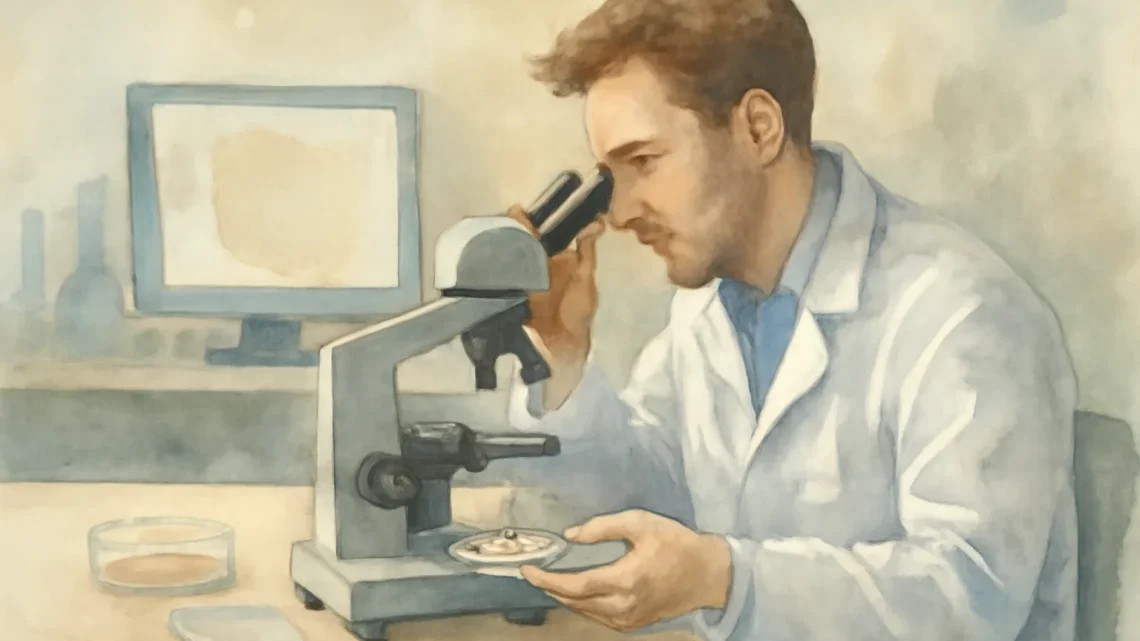
University of Bradford Develops Animal-Free Cancer Drug Testing
October 16, 2025New ‘organ-on-a-chip’ technology aims to improve prostate cancer research
The University of Bradford has begun using ‘organ-on-a-chip’ technology to develop a human-relevant model for testing prostate cancer drugs without the use of animals. This initiative is part of a wider effort to create more ethical and accurate drug testing methods.
Grant awarded for prostate cancer research
Dr Ethan Perkins, a lecturer in Cancer Biology and Therapeutics at the University of Bradford, has received a £24,900 grant from Animal Free Research UK. The funding supports a 12-month project to develop a fully humanised ‘organ-on-a-chip’ model that simulates how cancer drugs interact with human tissues. The model will avoid the use of animals and animal-derived materials.
The project will combine prostate cancer cells with healthy human cells, including fibroblasts from the tumour microenvironment and blood vessels, to replicate the tumour environment. Additionally, healthy organ equivalents such as the liver will be included to assess potential off-target side effects of drugs.
How organ-on-a-chip technology works
Organ-on-a-chip devices are small, about the size of a USB stick, and contain tiny channels that serve as incubators for living human cells. These devices mimic the function of human organs, allowing researchers to test new drugs in a system that behaves like real human tissue.
- The technology supports growing different types of human cells to replicate various organs.
- It enables testing of drug effects on both cancerous and healthy tissues.
- It aims to provide safer and more accurate drug screening without animal use.
Context of wider regulatory changes
This research aligns with a growing international interest in alternatives to animal testing. In the UK, government officials have indicated plans to develop a roadmap to phase out animal testing. Meanwhile, in the United States, the FDA Modernization Act 2.0 has removed the legal requirement for animal testing in drug development, encouraging the use of validated alternatives like organ-on-a-chip systems.
University and expert perspectives
Dr Perkins highlighted the importance of studying drug effects not only on tumours but also on healthy organs such as the liver and kidneys to identify potential damage. He noted that advances in computational modelling are supporting the development of these technologies and moving towards the eventual replacement of animals in drug testing.
Pattarawadee Kengkwasingh, a PhD researcher involved in the project, described organ-on-a-chip models as valuable tools for drug discovery and personalised medicine, offering more ethical and human-relevant insights.
Professor Sherif El-Khamisy, Pro-Vice-Chancellor for Research & Innovation at the University of Bradford, stated that this project reflects the university’s commitment to impactful and sustainable scientific research.
Background on animal testing regulations
Animal testing has been a standard requirement in drug development since 1938, when the US Food and Drug Administration mandated animal safety tests following a toxic drug incident. However, recent legislative changes, such as the FDA Modernization Act 2.0, have removed this requirement and opened the way for alternative methods like organ-on-a-chip technology.
About Animal Free Research UK
Animal Free Research UK is a charity that funds scientific research aimed at replacing animal testing with human-relevant methods. Since 1970, it has awarded over £11 million in grants to support projects focused on ethical, animal-free medical research.
More information about animal-free research and statistics on animal use in medical testing can be found on the Animal Free Research UK website.




































